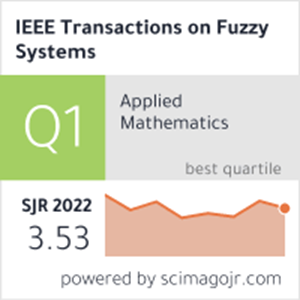异构源教师模型的模糊域自适应
IF 10.7
1区 计算机科学
Q1 COMPUTER SCIENCE, ARTIFICIAL INTELLIGENCE
引用次数: 0
摘要
依赖于数据匹配的无监督域自适应在利用来自源域的可转移知识时可能会引起隐私问题。为了解决这个问题,人们提出并随后开发了无源域自适应。然而,即使只使用源模型而不直接访问源数据,由于模型反转攻击的潜在数据泄漏,隐私风险仍然存在。除此之外,另一个未被充分研究的问题是跨多个源域的特征异质性。在本文中,我们提出了一种模糊域自适应方法,即模糊异构域自适应(FuzHDA),它从异构教师模型中学习模糊规则,即使这些模型是黑盒子。该方法首先在单个设备上私下训练异构源模型,而不共享任何信息,包括数据和模型参数。然后,使用存储来自预训练源模型的所有目标预测的记忆库,我们应用自我知识蒸馏方法来训练目标模型,该模型模拟来自这些异构源教师的预测。在完成目标模型后,利用快速学习和发现因果因素的跨模态混合模型在最后一步通过自我监督进行微调,以促进迁移绩效。在实际数据集上的实验证明了该算法的优越性。本文章由计算机程序翻译,如有差异,请以英文原文为准。
Fuzzy Domain Adaptation From Heterogeneous Source Teacher Models
Unsupervised domain adaptation that relies on data matching can raise privacy concerns when leveraging transferable knowledge from the source domain(s). To address this issue, source-free domain adaptation has been proposed and subsequently developed. However, privacy risks persist due to potential data leaks from model inversion attacks even when using only source models without accessing the source data directly. Alongside this, another underexplored problem is feature heterogeneity across multiple source domains. In this article, we propose a fuzzy domain adaptation method, fuzzy heterogeneous domain adaptation (FuzHDA), that learns fuzzy rules from heterogeneous teacher models, even when these models are black boxes. The proposed method first trains heterogeneous source models privately on individual devices without sharing any information, including neither data nor model parameters. Then, using a memory bank that stores all target predictions from the pretrained source models, we apply a self-knowledge distillation approach to train a target model, which simulates the predictions from these heterogeneous source teachers. After completing the target model, a cross-modality hybrid model leveraging prompt learning and uncovering causal factors is fine-tuned via self-supervision at the last step to facilitate transfer performance. Experiments on real-world datasets demonstrate the superiority of the proposed FuzHDA.
求助全文
通过发布文献求助,成功后即可免费获取论文全文。
去求助
来源期刊

IEEE Transactions on Fuzzy Systems
工程技术-工程:电子与电气
CiteScore
20.50
自引率
13.40%
发文量
517
审稿时长
3.0 months
期刊介绍:
The IEEE Transactions on Fuzzy Systems is a scholarly journal that focuses on the theory, design, and application of fuzzy systems. It aims to publish high-quality technical papers that contribute significant technical knowledge and exploratory developments in the field of fuzzy systems. The journal particularly emphasizes engineering systems and scientific applications. In addition to research articles, the Transactions also includes a letters section featuring current information, comments, and rebuttals related to published papers.
 求助内容:
求助内容: 应助结果提醒方式:
应助结果提醒方式:


